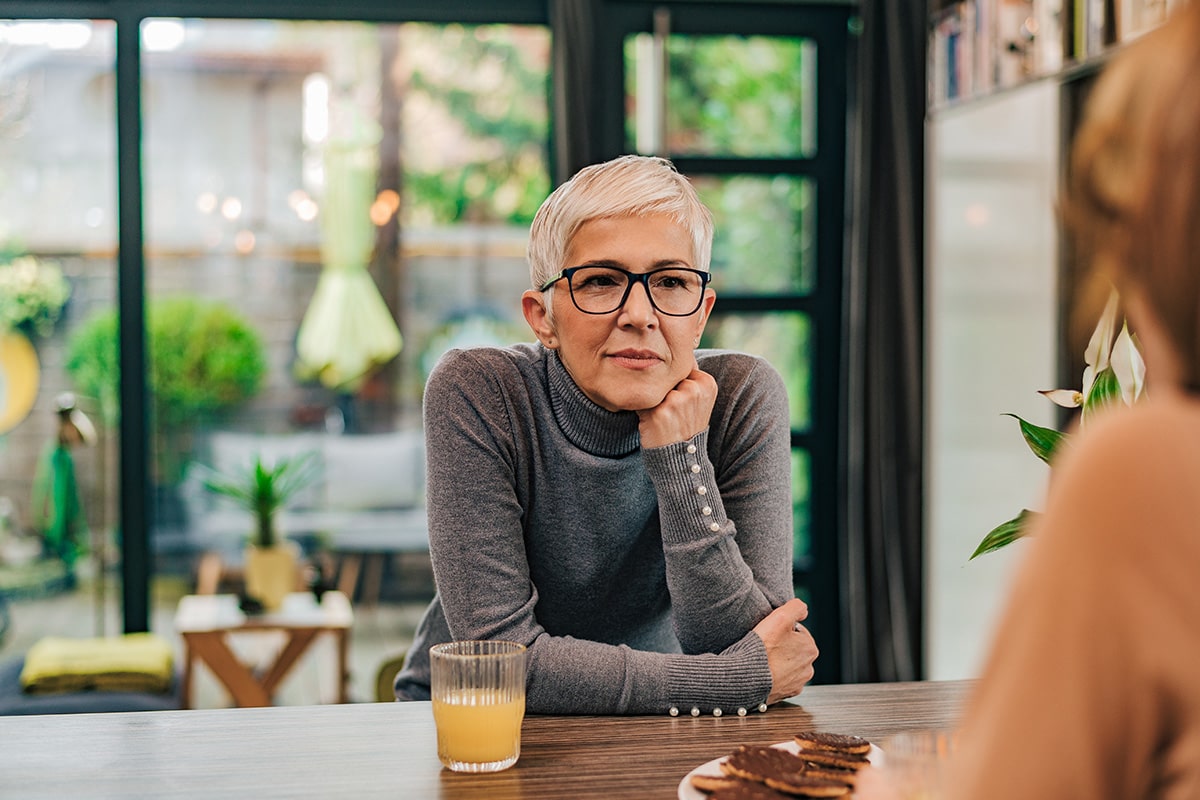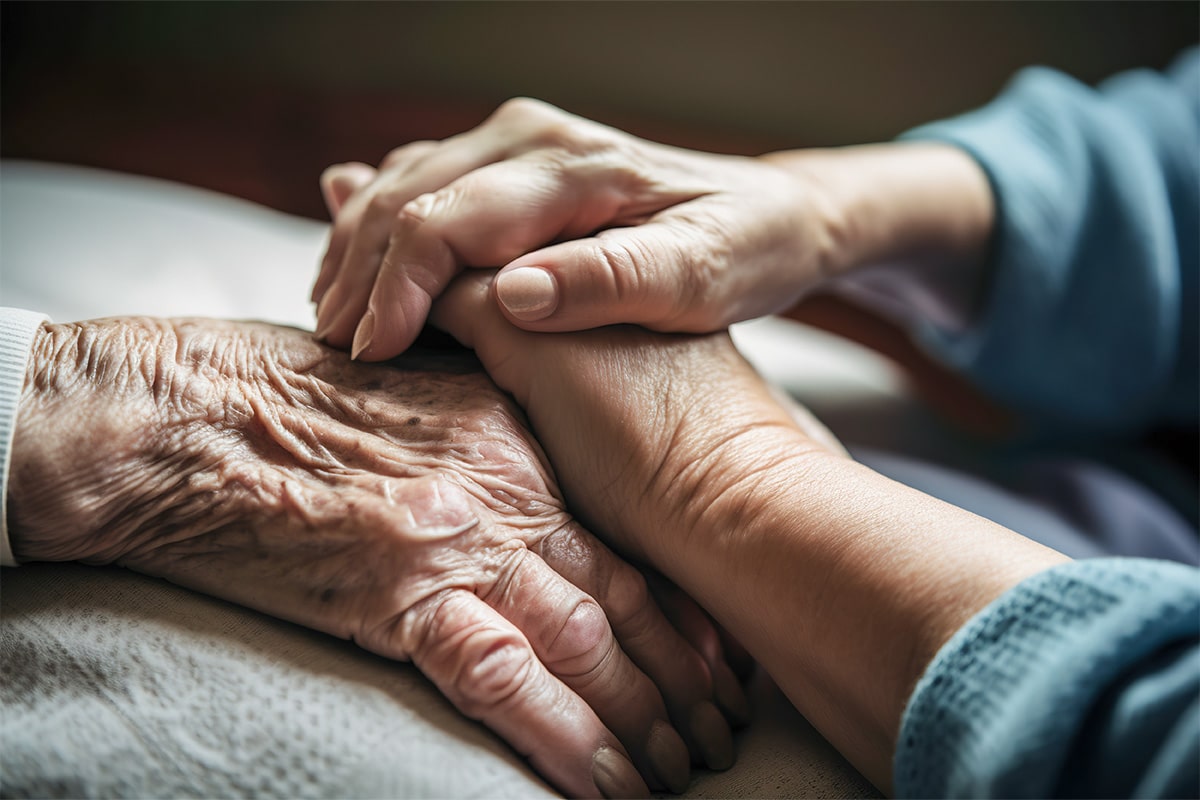Everyone has different comfort levels with how and when they disclose their Parkinson’s diagnosis. Keeping an open line of communication with loved ones is especially important to minimize frustration and ensure you get the physical and emotional support you need.
In most cases, you will find that family members just want to help. Educating them on the specifics of your diagnosis and how they can meet your needs is the best way to avoid miscommunications and build solidarity within your family unit.
Here’s how to educate your family members on your Parkinson’s diagnosis lovingly.
Take Time to Adjust to Your Diagnosis

First and foremost, take as much time as needed to process your diagnosis independently. Whether you are eager or hesitant to share with others, take a pause to filter through your thoughts and emotions.
The more confidence you have in your feelings, the more comfortable you will feel discussing with others.
If you’re not ready to share with family, you can still find support by seeking more neutral mediums for discussion. Talk to your doctor, support groups, or a mental health professional to help clarify your emotions and prepare you for the conversation with your family members.
Plan For the Discussion

Once you’re ready to talk to your loved ones, plan what you want to share and if you prefer to chat in person or over the phone. Being intentional in your approach will give you agency and help taper anxieties associated with the conversation.
Common Questions from Relatives
You’ll find it helpful to write out a list of anticipated questions and answers. People often have preconceived notions about Parkinson’s.
- What exactly is Parkinson’s disease?
- What are the causes of Parkinson’s disease?
- Is Parkinson’s disease hereditary?
- What are the common Parkinson’s symptoms?
- How did you find out you have Parkinson’s disease?
- What is the disease progression like for Parkinson’s?
- How is Parkinson’s disease treated? What medications will you be taking?
- Will you be able to continue working?
- Will this affect your life expectancy?
- How will Parkinson’s disease impact your day-to-day life?
- What lifestyle changes will you need to make?
- How can we help or support you?
- How will this affect your mobility and independence?
- Are there any physical therapies or exercises that can help manage the symptoms?
- What kind of specialists will be part of your care team?
- Can you still drive?
- Are there any research advancements or experimental treatments that might be available?
- Will you be able to travel?
- Are there any dietary changes that could help manage the symptoms?
- How are you feeling about your diagnosis?
Help dispel myths about your diagnosis by preparing your answers in advance. Coming to the conversation with hard facts will help to minimize emotionally charged and exhausting conversations.
Finally, be intentional in your timing. For example, avoid broaching the topic when someone has had a stressful week, or when your child is experiencing a transition period. Ensure you have enough time to fully address any questions or concerns your family member may bring up.
Sharing with Children

Sharing with children is dependent on age and maturity levels.
With young children, come to the conversation from a place of reassurance. They may have seen evidence of your symptoms. Addressing these symptoms in simple terms may help them better understand your diagnosis.
On this note, feel free to embrace a positive outlook. Your explanation should address the realistic progression of PD and the optimistic breakthroughs being made by researchers.
Teenagers and older children often focus on what they can do to help. Depending on the stage of your diagnosis, you can either suggest specific actions, such as taking your weekly trash out, or assure them that you will let them know if and when you require assistance.
Maintaining an open line of communication with children of all ages is the best way to help them cope with your PD diagnosis. Give them space to ask questions and update them as your symptoms change.
Sharing With Your Spouse

Your spouse is often present when your doctor announces the diagnosis. If they weren’t, getting them in the loop as soon as possible is essential. As hard as it may be to verbalize your diagnosis, having your spouse on board will help you better approach Parkinson’s as a unit.
Approach the diagnosis with a collective front, where you and your spouse can research, learn, and ask questions together. You never know when they’ll come up with something you hadn’t considered, and a supportive partner can become your biggest advocate.
Sharing With Your Parents

Sharing with your parents may be particularly difficult, especially if they are at an advanced age or you act as their caretaker. It’s not uncommon for parents to feel guilt or frustration over their inability to prevent Parkinson’s.
Quell their frustrations by presenting the facts about Parkinson’s and how it progresses, and continue an ongoing dialogue about your symptoms.
Depending on your family dynamic, you may feel uncomfortable being forthright with your feelings. Or if your parents are elderly or infirm, you may choose not to tell them.
Many factors will impact your decision to tell your parents, which is ultimately yours to make.
Be Prepared for Discomfort

Not everyone you talk to is going to know how to react. Even the best-intentioned family members may come off as insensitive from time to time. When people make awkward comments, consider that they are likely coming from a place of love and they’re learning to navigate your diagnosis in their own way.
Additionally, it can be a balancing act determining what level of assistance you want or need following your diagnosis. Avoid frustration by being very direct in your asks, and discuss with your care partner precisely what you do and do not want help with.
Communication Is Key

When sharing your Parkinson’s diagnosis with family, the number one thing to do is keep an open dialogue. Continuously educate your loved ones on what PD is, how it manifests for you, how you feel as it progresses, and what they can do to support you.
With appropriate communication, you’ll ensure you respect yourself and others and build a solid community of love and support. Feel free to reach out to PCLA for guidance and resources on how to best handle sharing your diagnosis with your family.



0 Comments